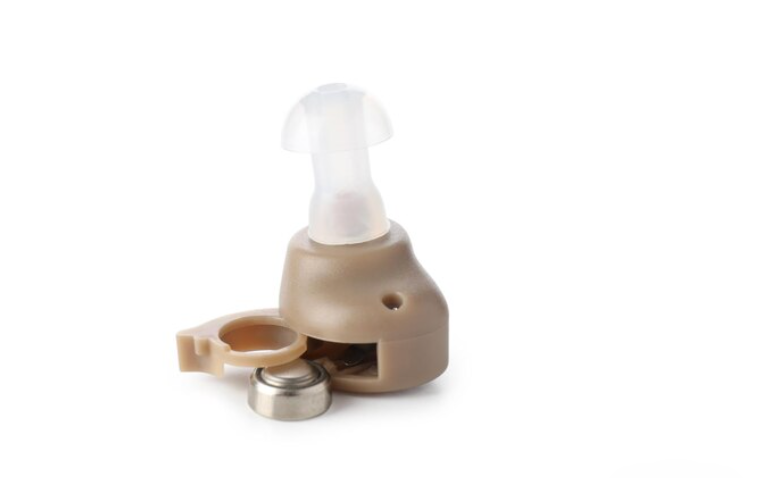
Our Blog
How Long Is the Life of Hearing Aid Battery Types in Canada

The lifespan of your hearing aid batteries is important because it directly affects your hearing aid’s reliability and cost-efficiency. When you’re aware of how long they typically last, you can avoid sudden power loss and ensure consistent hearing support. This also helps you choose the right hearing aid batteries and know what to expect. Plus, think of how much money it can save you in the long run.
The battery life of hearing aids in Canada depends on several factors, including battery type, size, and how much power your hearing aid requires. Let’s dive into the details to help you make the best choice for your hearing aid needs.
Typical Hearing Aid Battery Life
Hearing aid battery life can vary depending on the type of battery you use, the features of your hearing aids, and your daily listening habits. On average, disposable hearing aid batteries last between 3 to 10 days. Rechargeable hearing aid batteries can provide a full day of use on a single charge and typically last up to 3 years before needing replacement.
Types of Hearing Aid Batteries
Hearing aids primarily use two types of batteries: disposable zinc-air batteries and rechargeable lithium-ion batteries. Let’s discuss them each.
Rechargeable Hearing Aid Batteries
Rechargeable hearing aid batteries have become increasingly popular. They typically use lithium-ion cells that can be recharged overnight using a charging station. Rechargeable batteries offer convenience and reduce waste associated with disposable batteries. A full charge usually provides between 16 and 30 hours of continuous use, depending on how much you use features like Bluetooth streaming.
Disposable Hearing Aid Batteries
Disposable hearing aid batteries, known as zinc-air batteries, remain widely used. They come with a protective battery tab that, once removed, activates the battery by allowing air to enter. After activation, these batteries begin discharging even if the hearing aids aren’t being used. When stored in a dry place at room temperature, disposable batteries typically have an average shelf life of up to three years.
Interestingly, the zinc-air batteries used in hearing aids are being studied as a potential energy storage solution for renewable energy. This shows just how innovative these small batteries can be beyond their daily hearing aid use.
Why Battery Size Matters
Battery size directly affects how much energy the battery can store. Physically bigger batteries have more space for chemicals inside, so they store more energy. This means they last longer before needing to be replaced or recharged. On the other hand, smaller batteries store less energy and therefore need to be changed more often.
Hearing Aid Battery Sizes
Battery size plays a key role in determining how long your hearing aid will run before needing a replacement. Smaller batteries, like size 10, usually last between 3 to 5 days, while larger size 675 batteries can power hearing aids for up to 15 days.
The four most common zinc-air battery sizes include:
Size 10 (Yellow tab): Smallest option, typically lasts 3-5 days
Size 312 (Brown tab): Offers about 5-7 days
Size 13 (Orange tab): Can last 6-10 days
Size 675 (Blue tab): Largest, usually lasts 9-15 days
Hearing aids come in different styles. Discreet hearing aids (like CIC – completely-in-canal) often use smaller batteries to maintain a slim profile. Larger BTE (behind-the-ear) models can use larger batteries that last longer.
Hearing Aid Technology Matters, Too
Battery life also depends on the technology inside your hearing aids. Features like wireless streaming, Bluetooth connectivity, and advanced noise reduction use more power. Even larger batteries may drain faster if you’re streaming audio or using high-powered features often.
Hearing Loss Level and Hearing Aid Battery Power
People with more severe hearing loss often need hearing aids with stronger amplification, which requires more battery power. These higher-powered hearing aids drain batteries faster compared to hearing aids for mild hearing loss. So, if you need more amplification, expect to change or recharge your batteries more frequently.
Battery Drain From Continuous Use
As with other battery-powered devices, continuous use can shorten how long your hearing aid batteries last. If you wear your hearing aids all day, every day, the batteries will naturally drain faster compared to only occasional use. Streaming music or phone calls via Bluetooth also accelerates battery use. Knowing this helps you plan for timely battery replacements or recharges.
Extending Your Hearing Aid Battery Life
You can extend your hearing aid battery life by following some simple strategies:
Turn off your hearing aids when you’re not using them.
Open the battery door at night to reduce battery drain.
Limit wireless streaming and other power-hungry features when possible.
These habits help reduce battery drain and ensure you get the most out of each battery cycle. Also, observe proper storage practices.
How to Store Batteries
To maximize the life of your hearing aid batteries:
Store hearing aid batteries in a cool, dry place, avoiding humidity.
Avoid storing batteries in the refrigerator, as moisture can damage them.
Avoid storing batteries in extreme heat or cold.
Keep them away from metal objects (like keys or coins) that could short-circuit the batteries.
Use a hearing aid dehumidifier overnight to protect both your hearing aids and batteries from moisture damage.
Always buy hearing aid batteries from a reputable source to ensure they’re fresh and have a full shelf life.
When To Change Hearing Aid Batteries
Recognizing when to change hearing aid batteries can save you from sudden interruptions in hearing. Signs include:
Hearing aids making low battery beeps
Sound becoming distorted or cutting out
Reduced volume or less clarity
Always carry extra batteries or a fully charged set of rechargeable batteries to avoid being left without hearing support.
Before you even choose your hearing aids and their batteries, consider getting a hearing test in Canada to ensure you’re picking the right devices for your hearing needs.
Conclusion
Pay attention to your hearing aid batteries and how long they last. With the right choices, your hearing aids stay reliable, and you avoid sudden cut-offs. Make sure your batteries match your lifestyle and hearing needs for a more consistent listening experience.
